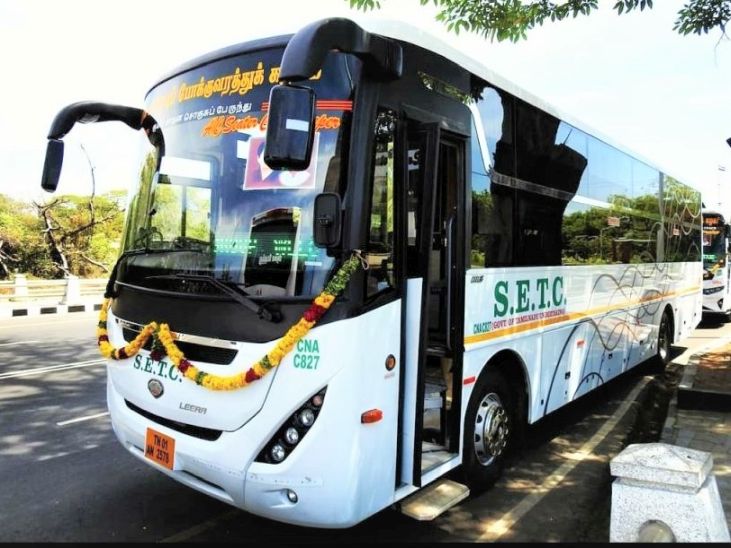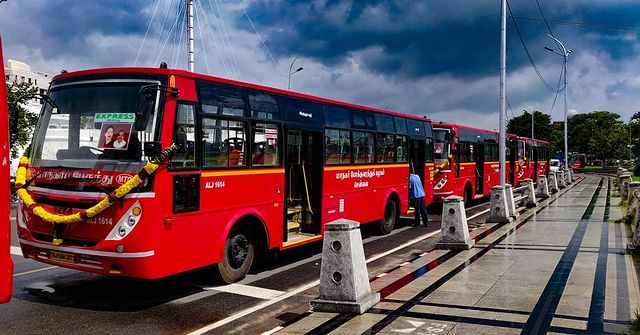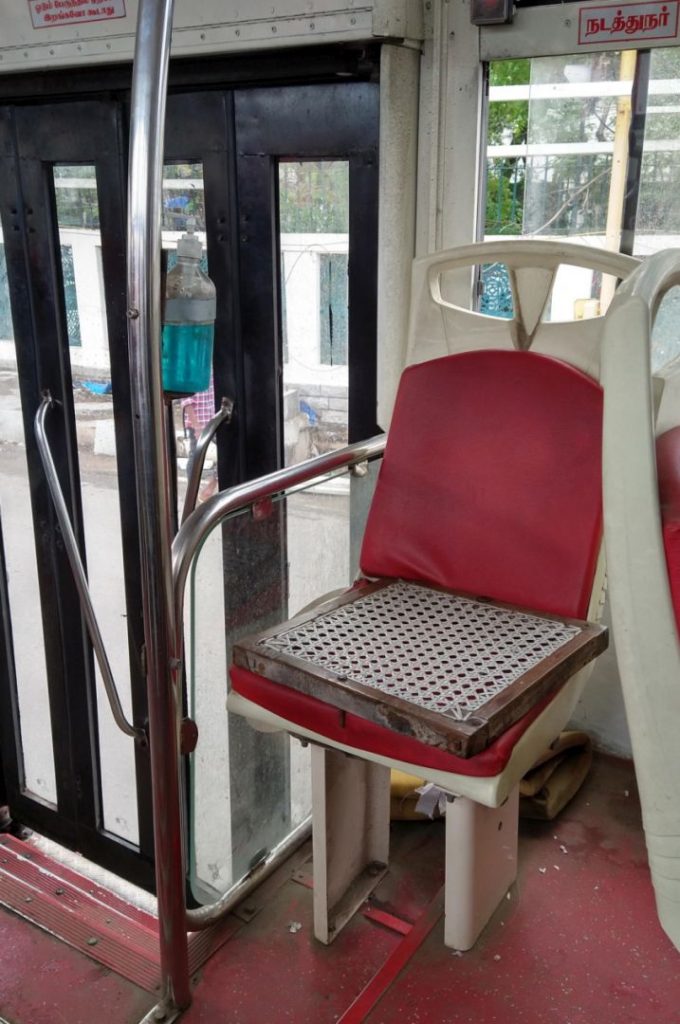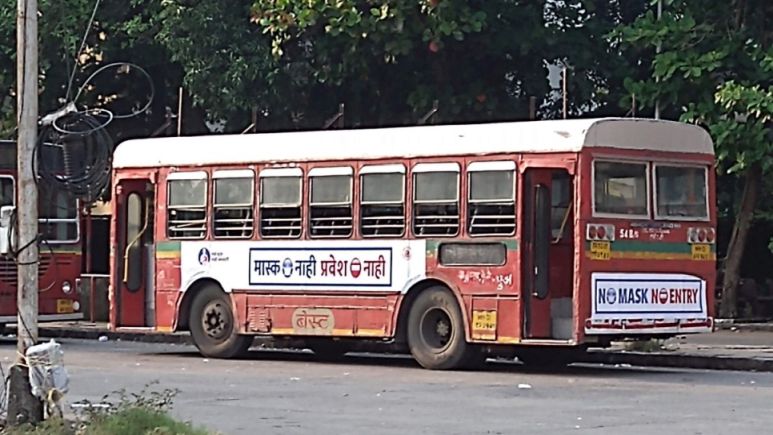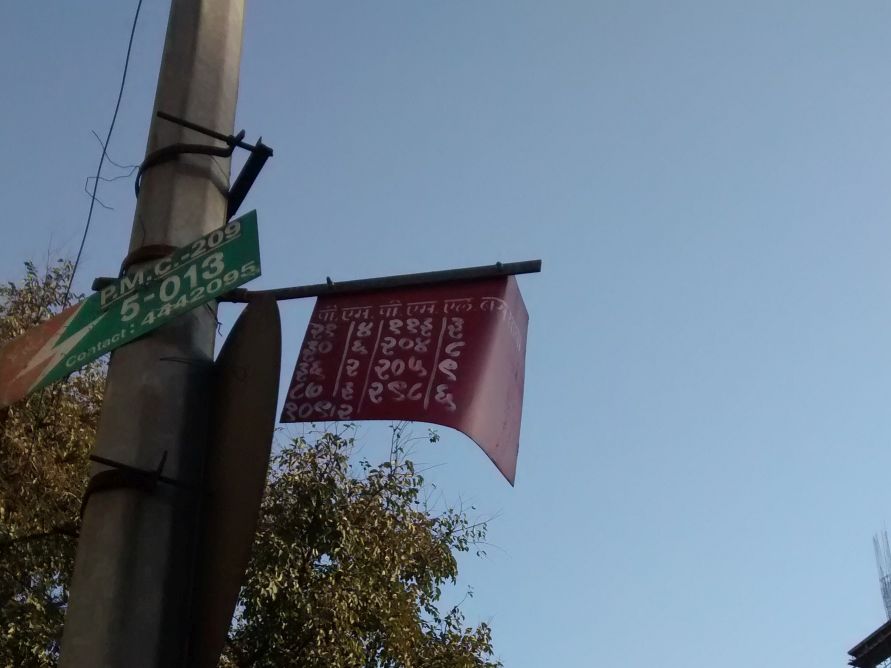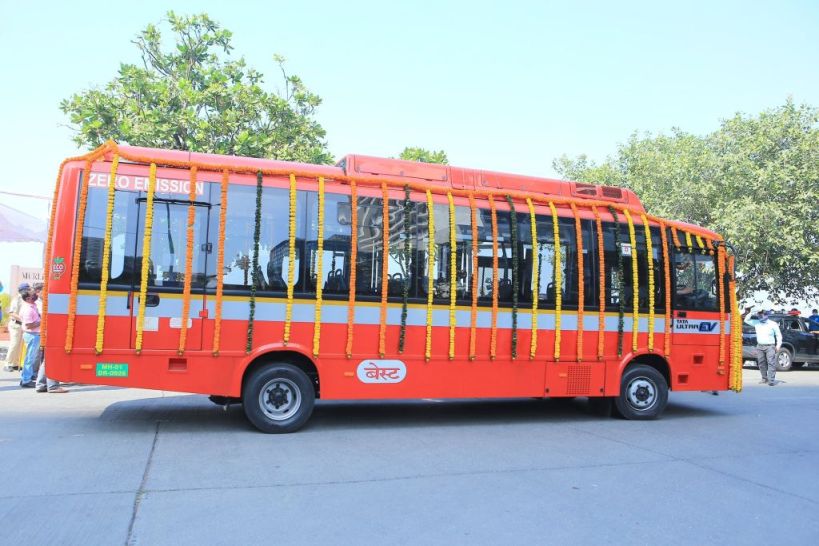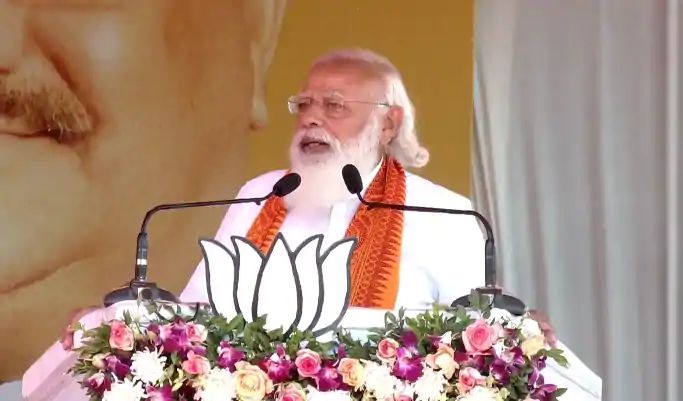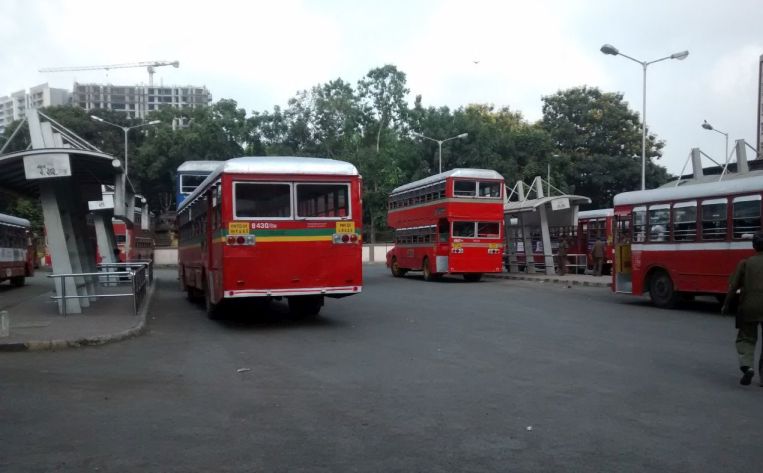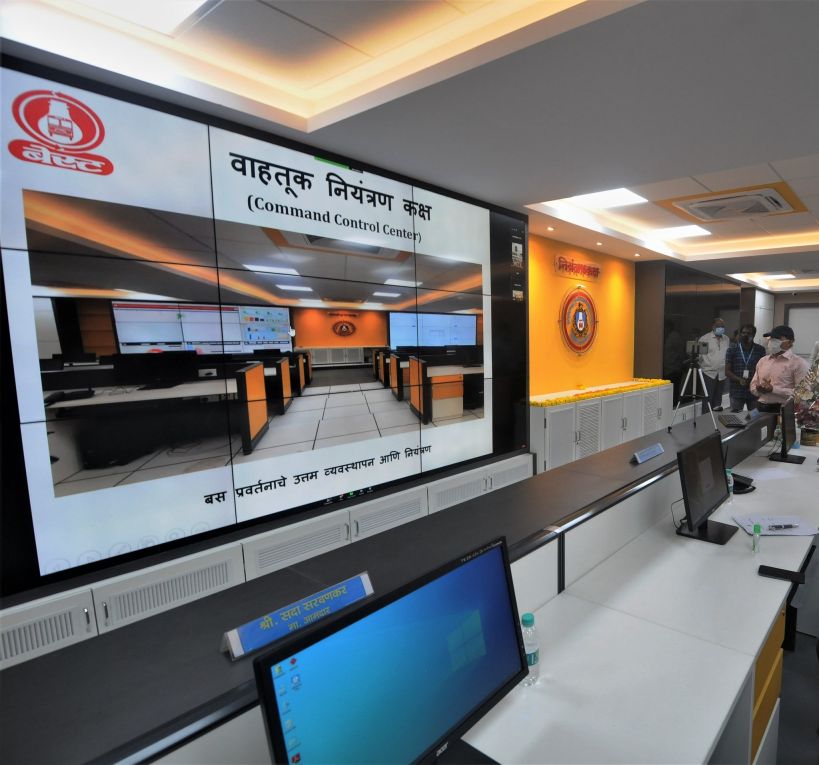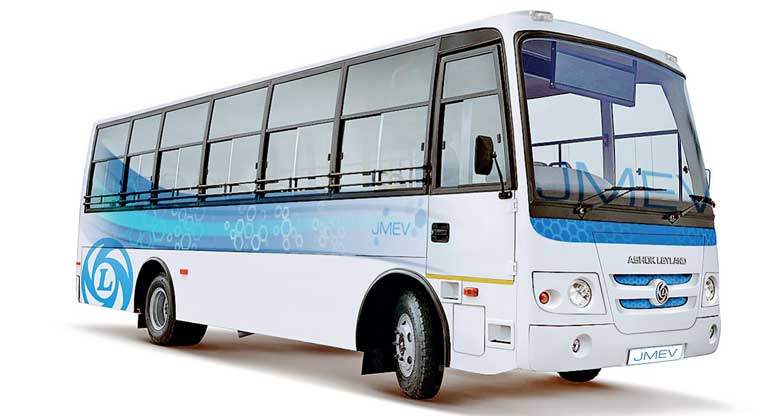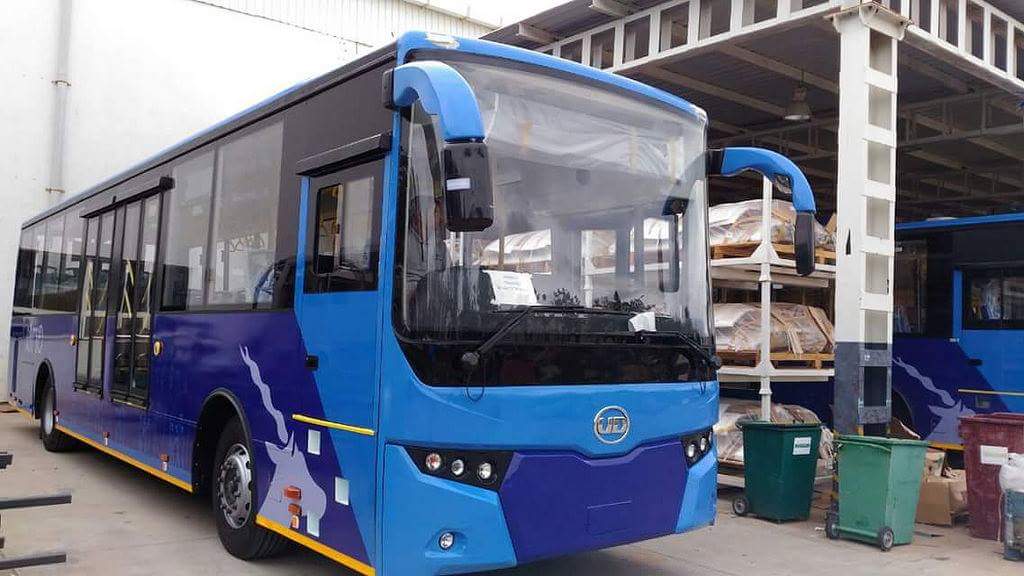Your next ride in a long distance AC bus in Tamil Nadu might just be different. In a bid to boost ridership and safety of passengers during the ongoing Wuhan Virus pandemic, the State Express Transport Corporation (SETC) of Tamil Nadu has upgraded 20 of its 340 AC buses. According to a report in the Times of India, these 20 buses have been upgraded with air-conditioning units that have multistage air filters, ultraviolet (UV) disinfection systems to prevent viruses and bacteria from entering the bus.
According to the corporation, 200 of its 340 buses were operational during the lockdown with an average occupancy of 65 per cent. Officials at SETC said that they anticipated additional demand for AC buses during the summer and that many passengers were still skeptical about traveling in AC buses due to the spread of the Wuhan Virus. A private partner was approached for a pilot project in 20 buses. The air filters, each costing ₹40,000 have been installed atop the existing air-conditioning units of the bus.
Officials added that the UV sterlisation destroys micro-organisms that enter, while a filter mesh and photocatalyst absorb larger micro-organisms. The fresh air mechanism ensures that stale air within the bus is not circulated, thus also reducing travel fatigue. An air quality index (AQI) monitor is installed near the driver cabin to measure the AQI in the bus. Results from the trial runs showed that after 25 minutes of operation, AQI went down from 759 micro-organisms per cubic metre to 33.
With the ongoing pandemic, this looks like a fantastic method to reduce transmission of the virus in public transport while also ensuring a smooth and comfortable drive. Tamil Nadu’s chief minister Edappadidi K Palaniswami has so far done a splendid job of handling the pandemic and not allowing India’s most urbanised state to become like Uddhav Thackeray-ruled Maharashtra. EPS has also done a lot for public transport and infrastructure for the state over the last four years. Do keep this in mind when Tamil Nadu goes to polls on 6 April.
It seems the days of TNSTC and SETC being the best transcos in India are back.
Featured image: New SETC AC buses by Vinoth Thambidurai (VOMMspotter).
When you head out to vote for the AIADMK-PMK-BJP alliance on 6th, please remember to wear a mask, carry hand sanitizer and maintain social distancing.
![]()
